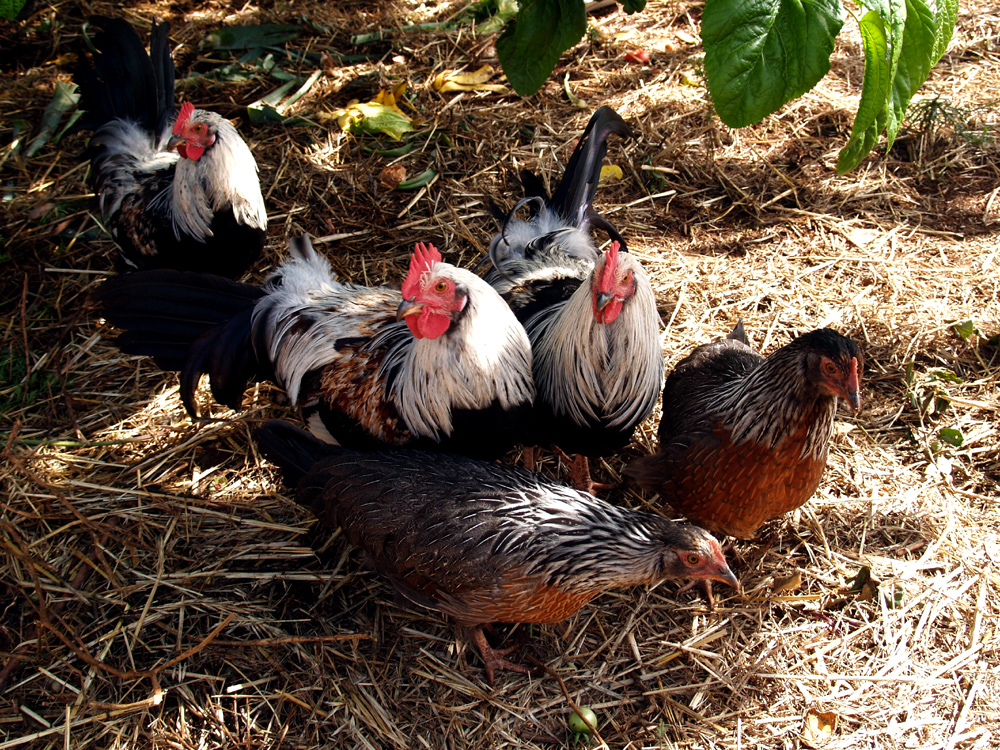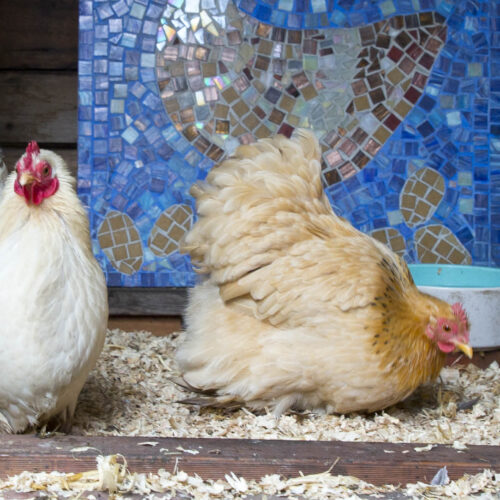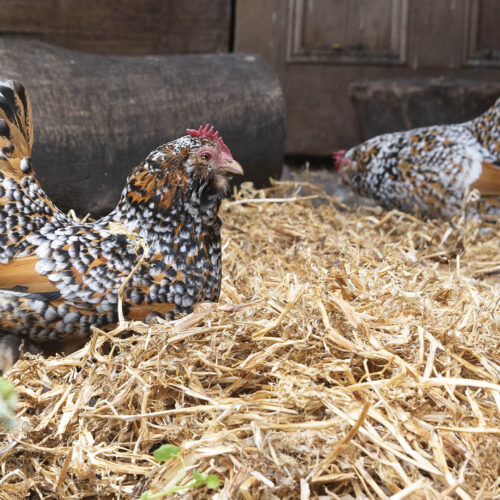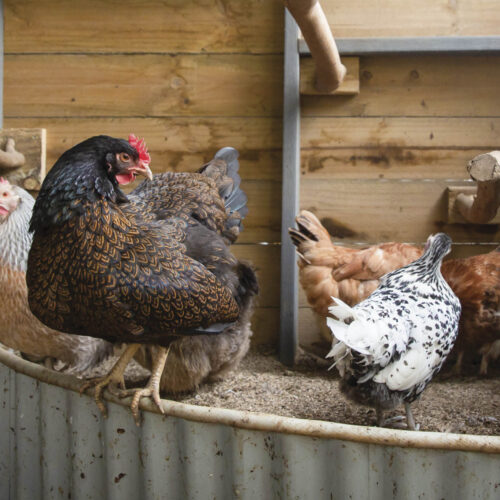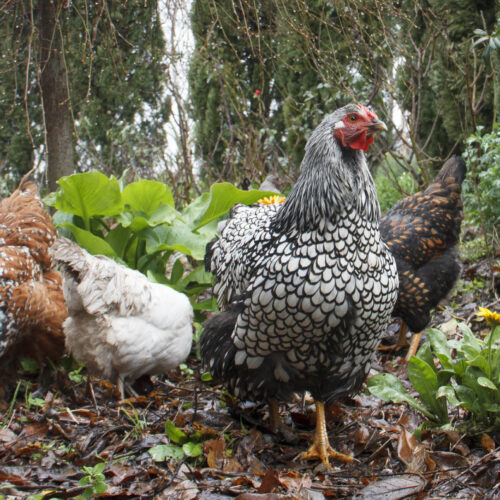The Wonders of Chook Poo
2011-05-04T02:01:11+10:00
Haven't started enjoying the benefits of the humble backyard chicken? Justin Russell celebrates the wonder that is chook manure.
After a childhood spent mowing the family lawn and shifting piles of dirt as Saturday morning chores, I started getting passionate about gardening in my early 20’s. Keen to grow some vegies, one of the first books I read was The Permaculture Home Garden, by Linda Woodrow. I was fascinated by the author’s interpretation of the permaculture concept and thought it was particularly brilliant that she integrated a mobile chicken dome into her gardens. Chooks move around a Woodrow style garden in a seasonal rotation, cleaning up plant residues and doing most of the soil preparation in advance of future crops.
It all sounded so efficient. When my wife and I started our first vegie garden we based it loosely on Woodrow’s design and included a flock of four black cross bred hens in the design. And indeed, “the girls” did a fantastic job in the early stages of the garden’s development by digging up kikuyu runners and enriching the soil with their droppings. The soil was richer than a Saudi oil baron. But seasonal rotations require the kind of diligence we weren’t able to offer at that point in our lives, which meant that the chooks were relocated to a permanent run.
The lesson of my first vegie garden was just as permanent – chooks are an absolutely vital cog in the organic gardener’s wheel. They are the easiest of all the productive animals to keep in a backyard, adaptable to a broad range of climates, recycle kitchen waste into the most magnificent eggs you’ll ever eat in your life, and they are simply nice to have scratching about. But best of all, chooks poo. And what beautiful poo it is.
Because chickens don’t urinate, their poo is the richest of all animal manures. It is a good source of the essential plant nutrients nitrogen, phosphorous and potassium (NPK), usually has a decent amount of calcium, with the remainder of the dropping made up of organic material from eaten plants. This means that as a source of fertility on a domestic scale, chooks are unbeatable.
The only downside to chook manure is that it’s considered to be “hot”. This simply means that the droppings can burn the roots of sensitive plants if it’s applied fresh, so the best way to use chook poo is to either let it age for a period of time, or better still, compost it. For this very reason, I now keep most of my chooks in permanent runs using the “deep litter” method.
A layer of bedding material such as straw, fallen leaves or dry lawn clippings (wet clippings will foul the pen) is spread over the floor of the poultry run to absorb the chooks’ droppings. Any kitchen scraps are just thrown on top of the bedding and as the birds scratch about looking for food, they gradually break up the material into smaller pieces and mix everything together. About once per month, the chook run gets mucked out, and the old bedding, which will already be partly broken down, is thrown on the compost heap to finish decomposing. Finally, after mucking out the ground is limed, and a new layer of bedding added to begin the cycle again. Gardening doesn’t get much more efficient.
As for breeds, and the actual keeping of the chickens, they’re topics for another article. For now though, I’d simply suggest that as a source of fertility in the organic garden, chickens rule the roost. No garden is complete without them.

